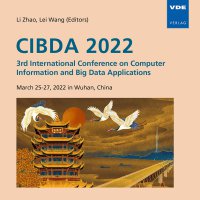Imbalanced data In Energy Disaggregation
Konferenz: CIBDA 2022 - 3rd International Conference on Computer Information and Big Data Applications
25.03.2022 - 27.03.2022 in Wuhan, China
Tagungsband: CIBDA 2022
Seiten: 4Sprache: EnglischTyp: PDF
Autoren:
Shang, Yong (North China Electric Power Scientific Research Institute Co. Beijing, China)
Gao, Xiaoyu (School of Information and Manage, Beijing Information Science & Technology University Beijing, China)
Zhao, Xiaoyong (Beijing Advanced Innovation Center for Materials Genome Engineering, Beijing Information Science & Technology University, Beijing, China)
Inhalt:
Energy disaggregation forecasts the consumption of individual appliance from a single meter that records a household’s overall electricity requirement. Although the appliance’s consumption of each usage fits a specific pattern, its load contains however different repetitive patterns in a period with personal habits of householder. Thus, it has no significant distribution and many numeric power levels as usual classification problem. Imbalanced data contains a skewed class as minority comparing to its majority, which is widely regarded as a significant drawback of the performance obtained by most standard classifier algorithms. Regarding the class biases a lot from the majority, the definition of skewed class and minority in regression shall be redefined in energy disaggregation. Upon the scenario, this paper aims to locate the rare class and provide an empirical assumption to help the relevant models to achieve higher performance. Accordingly, this paper locates the imbalanced data in Non-Intrusive Load Monitoring (NILM) in detail and verify the effect of skewed data to the modeling process. It supplies for reasoning performance difference between NILM dataset and appliances and provides a factor of promoting relevant algorithms’ performance.


